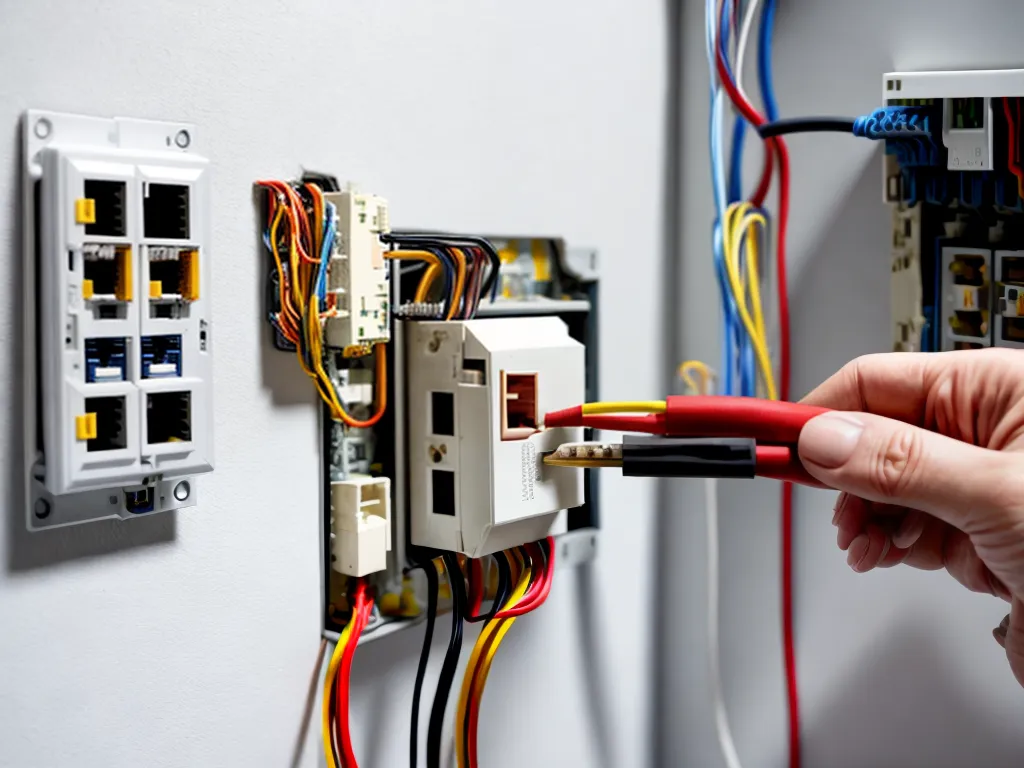
I have been doing some research into aluminum wiring recently, and I have to say I am seriously reconsidering using it in my home's electrical system. Here's a deep dive into the pros and cons and why I am rethinking aluminum wiring for my house.
What is Aluminum Wiring?
Aluminum wiring refers to electrical wiring that uses aluminum metal conductors instead of the more conventional copper conductors. Aluminum became a popular substitute for copper in the 1960s and 1970s because it was cheaper and more readily available.
However, aluminum has some important differences from copper that make it less than ideal for wiring homes:
-
Aluminum is less conductive than copper, which means more wiring is needed to carry the same amount of current. This can lead to undersized wiring and safety issues.
-
Aluminum wiring is more prone to oxidation and corrosion, increasing electrical resistance at connections which can generate dangerous heat levels. This leads to a greater fire risk.
-
Connections with aluminum wiring require special techniques and materials to avoid problems, making repairs and maintenance more difficult compared to copper.
The Fire Risk of Aluminum Wiring
The biggest concern with aluminum wiring is the increased fire risk it poses. Fires can start in several ways:
-
Oxidation at connections between copper and aluminum wires generates heat that can ignite surrounding materials.
-
Loose connections and poor terminations allow arcing that can spark fires. Aluminum wires are more likely to come loose over time.
-
Higher electrical resistance in aluminum wires produces more heat under load. This heat can degrade connections and insulation over time.
Statistics show that homes wired with aluminum have a significantly higher rate of electrical fires compared to copper wiring:
-
Fires in homes with aluminum wiring are 9 times more frequent than in homes with copper.
-
Electrical distribution fires occur 10 times more often in aluminum wired homes.
-
One study found a fire incidence of 1 in 10 for aluminum wiring compared to 1 in 1000 for copper.
Clearly, the fire safety record of aluminum wiring is concerning. The risk may be manageable with very careful installation and maintenance, but is higher than for copper in typical homes.
Difficult Repairs and Maintenance
Working with aluminum wiring requires following special procedures and using the proper materials. Connections need to be tightly torqued and inspected for heat signs. Breaker panels and outlets intended for aluminum wiring should be used.
If improper techniques are used, connections can loosen over time. Outlets start flickering as the wires heat up, and the fire danger escalates. Unfortunately, many homeowners and electricians who are used to copper aren't familiar with the special requirements for aluminum.
The bottom line is that repairs, replacements and upgrades are much trickier with aluminum wiring compared to copper. Doing it right requires hiring an electrician experienced with aluminum wiring, at extra cost to the homeowner.
Effect on Home Insurance and Resale Value
Insurers know that aluminum wiring represents an increased fire risk. Some companies may refuse to insure a home with aluminum wiring, or only with a waiver acknowledging the elevated risk. Those offering coverage often charge 10-15% higher premiums compared to copper wiring.
Potential home buyers are also wary of older aluminum wiring. It can be difficult getting financing for purchasing a home with aluminum electrical systems. If buyers can get a loan, it often requires a lower appraisal value and higher interest rate. This depresses the resale value of the property.
Is Aluminum Wiring Ever Acceptable?
New building and electrical codes now prohibit the use of aluminum for branch circuits less than 50 amps. However, aluminum wiring is still permitted for larger 100 amp and 200 amp feeder lines.
These larger gauge aluminum wires are considered fairly safe since they handle lower current density. Connections can be properly made, and the wiring is unlikely to be disturbed. So aluminum feeder lines to electrical panels may make sense in some new constructions.
Likewise, it may not always be cost effective for rewiring an entire home with aluminum wiring. In these cases, selective rewiring of the most critical branch circuits with copper, and pigtailing any connections between copper and aluminum, can help mitigate the risks.
Conclusion: Proceed with Caution
When evaluating using aluminum wiring in my home, I have to conclude the risks outweigh any upfront cost savings compared to copper. The elevated fire hazards, insurance costs, resale value loss, and increased maintenance challenges are all good reasons for me to avoid aluminum wiring if possible.
If I had an existing home with original aluminum wiring, I would strongly consider a complete rewire with copper, or at least selective replacement of the most problematic circuits. For any connections between aluminum and copper, proper joint preparations and materials would be essential. Clearly, aluminum wiring requires an abundance of caution.